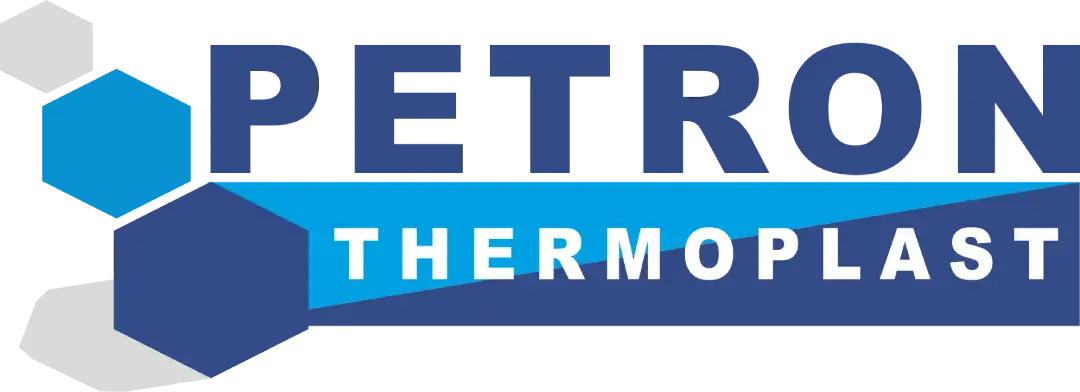Take the Detailed Guide about Transparent PVC Tubes from Petron Thermoplast
Transparent PVC tubes are a versatile and widely used material in various industries, including healthcare, automotive, and construction. In this blog post, Petron Thermoplast will show you the properties and uses of these PVC tubes and the benefits and drawbacks of this material.
What is a Transparent PVC Tube?
A transparent PVC (polyvinyl chloride) tube is a type of plastic tubing made from a flexible and durable material. It is called transparent because it is clear, allowing the user to see inside the tube. The PVC tubes are often used in applications where visibility and clarity are important, such as in the healthcare industry for delivering liquids or in the automotive industry for fuel lines.
The base forms of PVC
A rigid or unplasticized polymer (RPVC or uPVC) and a flexible plastic are the two main ways PVC is created. PVC is defined by its stiff yet brittle structure in its purest form. The rigid form of PVC is also used in several different industries, in addition to the plasticized form. Rigid PVC has numerous applications in the plumbing, sewage, and agricultural industries. Using plasticizers like phthalates makes flexible, plasticized, or standard PVC softer and more flexible than uPVC (e.g., diisononyl phthalate or DINP). Flexible PVC is frequently used in construction as flooring for homes, hospitals, schools, and other places where maintaining a hygienic atmosphere is a priority or as insulation on electrical cables.
Properties of Those PVC Tubes
The PVC tubes have several properties that make them popular for many applications. These properties include:
- Durability: The PVC tubes are known for their strength and durability. They are resistant to abrasion and can withstand high pressure and temperature fluctuations.
- Chemical resistance: The PVC tubes are resistant to a wide range of chemicals, making them suitable for use in environments where they may be exposed to various chemicals.
- Non-toxic: The PVC tubes are non-toxic and do not release harmful fumes, making them safe for food and medical applications.
- Flexibility: The PVC tubes are flexible and can be easily shaped or bent to fit the needs of a particular application.
- Rigidity: Many customers find transparent polyvinyl chloride pipes a unique pipeline option. Because they are sufficiently strong at pipe junctions and wall surfaces, these pipes are rigid and difficult to distort. They can therefore resist a dead load. Most notably, greater embedding conditions can enhance these clear, translucent PVC pipe tubes. They are ideal for scenarios involving deep trenches. They are suitable for low-pressure, wastewater, and gravity water applications.
Uses of The PVC Tube
PVC tubes have a wide range of uses due to their versatility and durability. Some common applications include:
- Healthcare: Transparent PVC tubes are commonly used in the healthcare industry for delivering liquids, such as intravenous (IV) fluids or medications. They are also used for catheterization, which involves inserting a tube into a patient’s body for medical purposes.
- Automotive: PVC tubes are used in the automotive industry for fuel lines and other fluid-delivery systems. They are resistant to the chemicals found in gasoline and other automotive fluids, making them a durable and reliable choice.
- Construction: PVC tubes are used in the construction industry for various purposes, including as electrical conduits or as protective casing for pipes. They are also used in irrigation systems to deliver water to plants.
- Food and beverage: PVC tubes are used in the food and beverage industry for conveying liquids and gases. They are non-toxic and meet food-grade standards, making them safe for use in this industry.
Benefits of The PVC Tube
There are several benefits to using those PVC tubes, including:
- Versatility: PVC tubes can be used in various applications due to their durability, chemical resistance, and flexibility.
- Cost-effective: PVC tubes are often more cost-effective than other materials, making them a budget-friendly choice for many industries.
- Non-toxic: The PVC tubes are non-toxic and do not release harmful fumes, making them safe for food and medical applications.
Drawbacks of The PVC Tube
There are a few drawbacks to using PVC tubes, including:
- Environmental impact: The PVC tubes are made from non-renewable resources, and their production can have a negative impact on the environment.
- Recycling challenges: The PVC tubes are difficult to recycle due to the various additives and stabilizers used in their production. It can make it challenging to dispose of them in an environmentally-friendly manner.
Conclusion
A top producer of thermoplastic industrial engineering materials, PETRON THERMOPLAST, accepts industrial projects for chemical and wastewater treatment plants. If you wish to know more about transparent PVC tubes, you can ask the company’s experts or get the necessary details from the website.





Pingback: https://dongythaytoan.org
Pingback: dultogel
Pingback: แนะนำ สูตรแทงบอล
Pingback: เว็บพนันเกาหลี
Pingback: เว็บบอล SBO ปิดให้บริการเพราะอะไร ?
Pingback: cinema rule
Pingback: dultogel
Pingback: aviator game